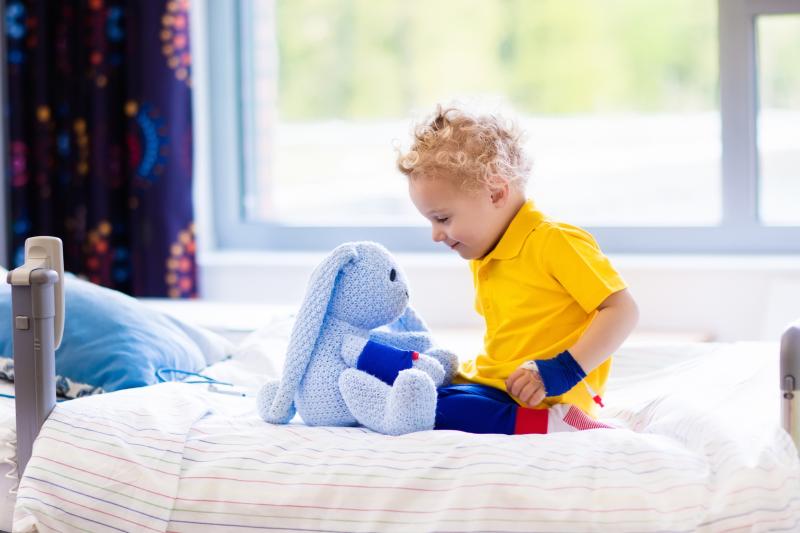
A puppet show performed during circumcision appears to produce analgesic and anxiolytic effects that linger even after the procedure, suggesting that pain and anxiety related to an invasive procedure in children can be effectively managed with nonpharmacological methods, according to a study.
Eighty-one children aged 7–11 years who were undergoing circumcision were randomly assigned to the experimental (n=40) or control (n=41) group. All children received local anaesthesia using the penile block technique with 2% prilocaine vial. The procedure took an average of 15 minutes (from the time the child entered the operating room to the time he exited). Outcomes were evaluated using the Participant Information Form, Wong Baker Faces Pain Rating Scale, and State-Trait Anxiety Inventory for Children.
In the experimental group, the children watched a 10-minute puppet demonstration in the operating room a minute after administration of local anaesthesia, with each child choosing a puppet. The script performed in the show was in the form of a conversation with children and included questions about the names of the family members, the school they went to, and what they did during the day. The control group, on the other hand, did not see a puppet show or underwent any other intervention during circumcision procedure.
The puppet show substantially reduced the median pain score both during and after the intervention compared with the control. Among children who watched the demonstration, the level of anxiety during and after the procedure was markedly lower than the pretreatment level, as was the level after vs during the procedure.
Likewise, in the control group, the level of anxiety after the procedure was lower than that during the procedure. However, anxiety significantly jumped during vs prior to the procedure.
In light of the findings, the researchers urged health professionals working in the field of paediatrics to perform a puppet show before or during the implementation of invasive procedures. Additional studies should also assess the effect of a video-recorded puppet show pain and anxiety levels to enable health professionals, such as a nurse who has not received therapeutic game training, to be able to use the intervention as well as to save staff.